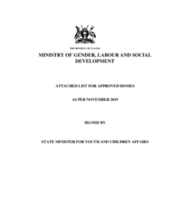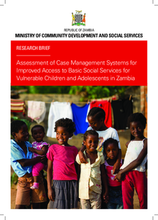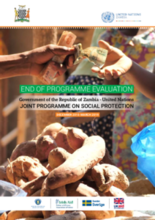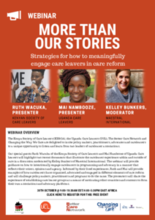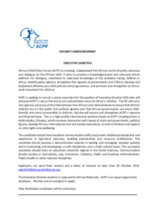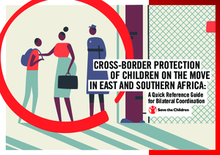Displaying 481 - 490 of 1617
This episode of the podcast Up/Root features interviews with Stephen Ucembe and Ruth Wacuka who both grew up in "orphanages," despite having parents. They share what it was like to grow up in an institution and what they are doing to help end orphanage tourism - and how listeners can join them in their pursuit of justice for families and children.
This document contains a list of alternative care homes in Uganda that have been approved by the Ministry for Gender, Labour and Social Development.
The purpose of this assessment is (a) to review existing case management systems within and in relation to the Ministry of Community Development and Social Services (MCDSS) in Zambia and (b) make recommendations on how case management can be enhanced to ensure more efficient and effective service delivery to vulnerable children and adolescents.
This report details the end of programme evaluation Government of the Republic of Zambia-United Nations Joint Programme on Social Protection as a way of understanding and assessing its operational context and the effect the technical assistance had on the implementation of National Social Protection Policy (NSPP) during the programme’s lifetime.
This webinar - presented by the Kenya Society of Care Leavers (KESCA), the Uganda Care Leavers (UCL), The Better Care Network and Changing the Way We Care - offered policy makers, practitioners, advocates and careleavers a unique opportunity to listen and learn from two leaders of careleaver associations who highlighted two recent documents that illustrate the careleaver experience within and outside of care.
This webinar invites policy makers, practitioners, advocates and careleavers to a unique opportunity to listen and learn from two leaders of careleaver associations.
ACPF is seeking to recruit a senior executive for the position of Executive Director (ED) who will enhance ACPF’s role as the moral and authoritative voice for Africa’s children.
International Federation of Social Workers 2019 Africa Region Conference will be held in Kampala, Uganda on 28-31 October 2019.
The objective of this study was to evaluate the health status and anthropometrical development of adopted children from Ethiopia living in southern Spain.
This Quick Reference Guide is a practical guide for all stakeholders who hope to implement a government-led, cross-border coordination mechanism for the protection of children who are unaccompanied and separated while in situations of migration or displacement.

